Buet’s problem is not with student politics, but Chhatra League

The High Court's ruling on Monday overturning Buet's ban on student politics—which was imposed after a group of Bangladesh Chhatra League (BCL) men murdered second-year student Abrar Fahad in 2019—is neither surprising nor shocking. It is only right as far as the idea of students being politically conscious or engaged is concerned. There is no question about the significance of this exercise in a country that has greatly benefited from it during some of the most turbulent periods of its history. Students engaged in politics are expected to serve the interests of general students, and not become a tool of exploitation for other interest groups.
But if a theoretical underpinning is what we needed, this ban or the lifting thereof wouldn't have been necessary in the first place. So, what's all the fuss about? The elephant in the room is Chhatra League or, rather, the version of student politics that it has come to exemplify over the last 15 years. During this time, what we know as "student politics" has been basically "student politics by Chhatra League"; so complete has been its control over our public universities that the two became one. BCL leaders and cadres have committed and/or gotten away with all sorts of crimes including ragging, violence, murder, extortion, seat trade, tender manipulation, illegal admission, etc.—thus sucking the air out of not just general students but rival student bodies as well.
So, any sense that Chhatra League, denied for over four years and finally reinstituted through the court order, could be tempted to export the full gamut of its terror to Buet is not totally unjustified. However, the organisation's leadership, at a press conference after the High Court's directive, pledged to depart from that tradition and bring in a version of student politics that will be "modern, time-befitting, diverse, creative, and based on knowledge and logic". We don't know what this means. Students, already having dread-filled premonitions, don't know what it means. Does even the BCL know, or believe in, it? The past is an unreliable indicator of what the future may hold.
Against this backdrop, the responsibility to resist the disruptive influences of BCL falls squarely on the Buet administration. The obligation that the administration has in terms of following the court order—with the VC citing contempt of court risks—does not extend to the BCL or its political masters. It must be able to ensure that no one, however powerful or politically connected, can disturb its academic environment or terrorise the students. At the same time, since this is a specialised institution with a long history of cultivating brilliant students, the administration must consider students' demand for appropriately raising their concerns about politics at the court.

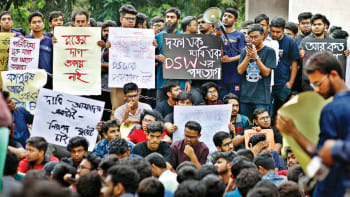
 For all latest news, follow The Daily Star's Google News channel.
For all latest news, follow The Daily Star's Google News channel. 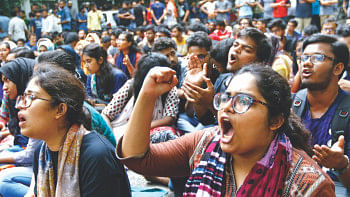
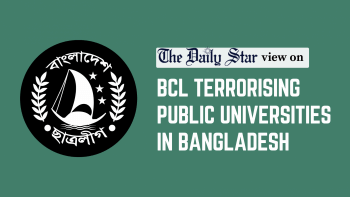



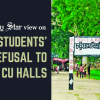


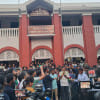


Comments